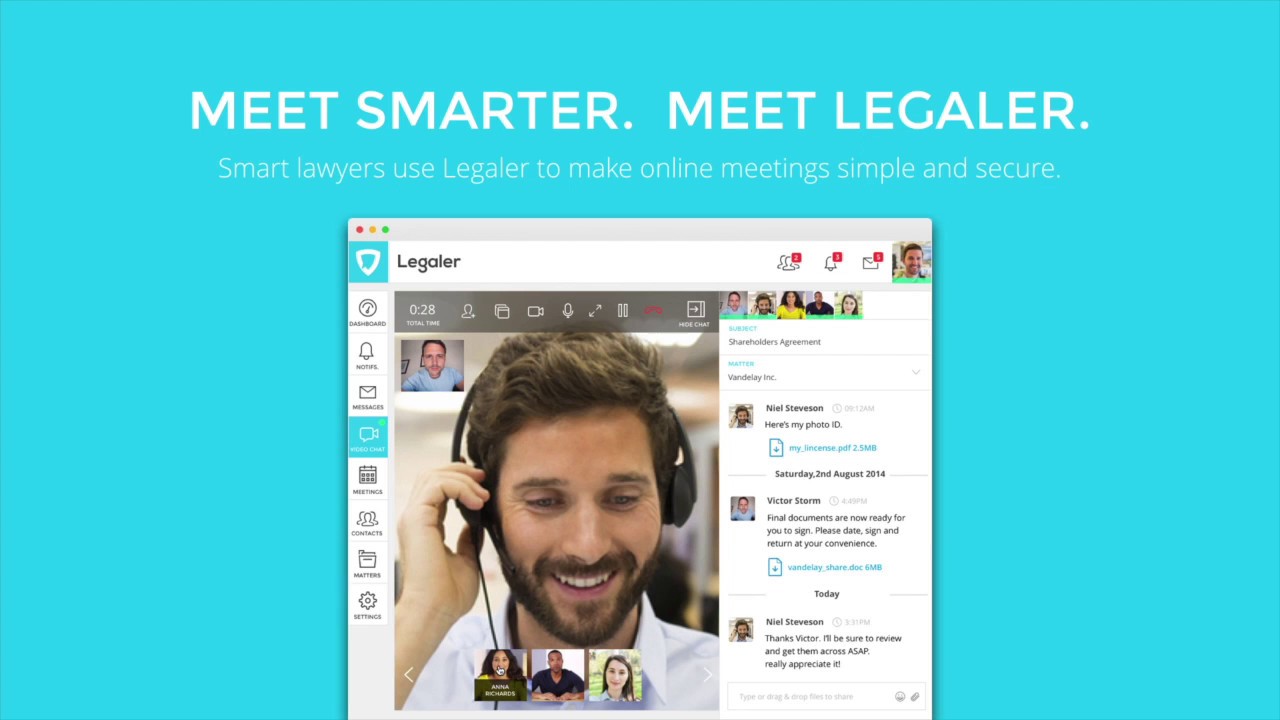 EMERGING TECH
EMERGING TECH
 EMERGING TECH
EMERGING TECH
 EMERGING TECH
EMERGING TECH
Australian legal communications technology company Legaler Pty Ltd. announced Monday that it has raised $1.5 million in funds in a round led by MasterNode Ventures, joined by Pacific Blue Capital and a number of prominent legal industry figures.
The company intends to use the funding to expand its planned distributed ledger blockchain technology infrastructure designed to connect clients and peers in order to support legal services transactions.
Legaler Chief Executive Stevie Ghiassi said he believes that access to legal services is a challenge facing society at large that can be met with the application of blockchain technology.
“In developed countries like the United States, United Kingdom, Canada and even Australia, 80 percent of people encountering a legal issue are unable to get help due to the prohibitive costs and arcane complexity of the system,” said Ghiassi. “There needs to be a fundamental shift and blockchain technology will provide just that.”
Legaler previously launched an online meeting tool in 2017 designed to help lawyers and clients collaborate securely. The system also provides simple scheduling, hosting capability, invoice and minutes tracking, and fully encrypted archives of meetings for purposes of representation.
Since the company’s launch, its communication client has been adopted by more than 1,000 legal firms across 80 countries. Although Legaler will focus on Australia first, Ghiassi told SiliconANGLE the existing network will give the company a significant advantage in the global market.
Blockchain technology provides a backbone for a tamperproof and trustworthy database that is shared between peers. Across numerous industries, blockchains have been used to track billing, shipments, securities and stocks, as well as anything that can be uniquely identified as a document or transaction.
Legaler intends to build its platform to allow legal entities to develop software that could take advantage of encryption and a fully auditable historical archive of transactions. The company intends to release software development kits and application programming interfaces to developers so that distributed applications, called dApps, can be created and connected to already existing software.
“Existing public blockchains have several limitations which limit privacy and transaction throughput which have prompted us to explore new consensus algorithms and sidechains for speed and cost savings, as well as zero-knowledge proof technology to meet the confidentiality requirements of the legal industry,” says Ghiassi.
The first dApp to be developed and deployed on Legaler’s ecosystem is called Legaler Aid. This application, developed in-house by Legaler, is designed to match disadvantaged clients with pro bono legal advice. This would be powered by a tokenized incentive system and a platform for crowdfunding social justice cases through tax-deductible donations.
These donation campaigns would function in a way similar to crowdfunding sites Kickstarter or GoFundMe, but would instead use Legaler’s internal blockchain tokens, called LGR, and these would encourage lawyers to take part in funded charity cases. The hope is that these sorts of crowdfunding campaigns would help attract attention and highlight injustices while at the same time demonstrate a marketplace for Legaler’s blockchain platform and other services built on it.
As for other examples of how the Legaler platform could be used to change the legal services industry, Ghiassi told SiliconANGLE he thinks there are many possibilities.
“Any existing business models that generally require an intermediary can be built on Legaler’s blockchain using the developer tools we are providing,” Ghiassi said. “Recruitment marketplaces, traditional online legal services marketplaces — no longer needing middlemen like Upcounsel and Avvo — private lawyer referral networks where lawyers are rewarded in tokens for leads, Q and A sites where clients can rewards lawyers in tokens for answering questions, and tokenized crowdsourced litigation funds. Even a ‘Linkedin’ for lawyers where engaging content can be upvoted by tokens.”
Developers will also be able to connect the Legaler blockchain with major legal platforms and protocols, including free legal repository OpenLaw, connected contracting platform Clause Inc., the Ergo blockchain, the legally enforceable smart contracts platform Accord Project and others.
To get a better understanding of blockchain technology and how it would intersect with the legal services industry, Legaler is convening an advisory team from both industries, including members from decentralized service marketplace CanYa, blockchain payment protocol company Ripple Labs Inc., Stanford University and developers working directly with the Ethereum blockchain founder Vitalik Buterin.
Intending to stay on top of regulatory requirements and other legal expectations, the company has also hired one of Australia’s most experienced blockchain and cryptocurrency lawyers, Michael Bacina from Piper Alderman.
To help raise more funds to continue to develop its platform and expand services, the company also plans a token sale that will be structured in a way to allow anyone from private to public interests to participate in the platform. The token sale, intended to help support the Legaler Aid program and provide access to the platform itself, is expected to bring in $35 million in what is called an initial coin offering, or the first time a blockchain company sells tokens to raise money to kickstart a platform.
“Although token sales were initially a democratic process, recent times have seen access to early stages of sales reserved for the elite few,” Ghiassi said. “We want to change that by getting back to what decentralization is all about.”
The company intends to launch its blockchain platform, and developer tools, around the fourth quarter. However, the company is in no hurry to push out an underdeveloped product, so if problems arise, Legaler may wait until the first quarter of 2019 for the launch to make certain that all details have been ironed out.
THANK YOU